It’s National Veterinary Technician Week and here at the Maryland Zoo we have four fabulous reasons to celebrate. Thank you for all you do for the animals and to support the doctors, keepers and other Zoo professionals you work with, Kaitlin, Jenny, Jen & Devon!
What is a vet tech and what do they do? We’ll let the vet techs who work in the Zoo’s animal hospital (and all over the Zoo, too) tell you themselves.
How would you describe your job to someone who’s never heard of it?
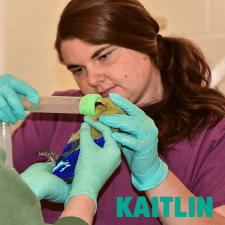
Kaitlin: I typically describe myself as an animal nurse. Not everyone is familiar with the responsibilities of a veterinary technician in a vet hospital. We are registered/Licensed similar to an RN.
Jenny: Veterinary technicians are the jack-of-all-trades in veterinary medicine. We are trained to do everything from catheter placement to anesthesia monitoring to laboratory diagnostics.
Jen: I describe my job as “all-encompassing” We are the pharmacist the phlebotomist, the radiologist, the laboratory tech etc…”
Devon: Challenging but Rewarding!
What is one thing that would surprise most people about your job?
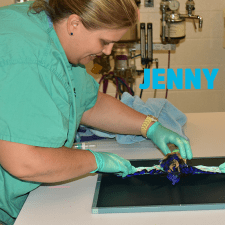
Kaitlin: What our job actually entails. When I tell people I do it all — I monitor anesthesia, take radiographs, prepare for procedures, draw blood, place IV catheters, assist veterinarians in surgery, and process laboratory samples, it really surprises them.
Jenny: I think many people are surprised to learn the scope of a veterinary technician’s responsibilities. We perform all of the tasks that would be completed by different professionals in human medicine such as nurses, phlebotomists, radiologists, and laboratory technicians.
Jen: That we have to have a license in the state we practice in… most people call themselves a tech because they work for a vet — not true!
Devon: A lot of people are surprised about what we actually do. I find they don’t realize we are also anesthetists, pharmacy techs, critical care nurses, dental hygienists, surgery assistants and so much more!
What’s the most rewarding part of being a vet tech at the Zoo?
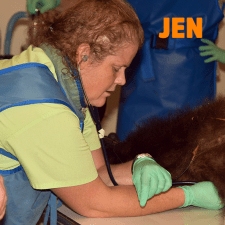
Kaitlin: The opportunity to work with all species. I love a challenge and I love that every day is different, especially the types of species that I work with.
Jenny: Being a part of the zoo family. They are an inspiring group of individuals dedicated to conservation, education, and providing the best quality of care for captive wildlife.
Jen: Training — getting an animals trust and being able to perform medical procedures without anesthesia makes my heart sing!
Devon: There is not just one part that is most rewarding to me. I can say that I am working my dream job and that achievement in itself is rewarding. But also the work I do on a daily basis with Zoo animals amazes me. Every day I find myself thinking “I can’t believe I just did that” or “wow, I can’t believe this is my job”. It’s wonderful to be a part of something that I can be proud of. And to work with a team (hospital staff and animal keepers) that are just as dedicated and motivated to achieve a common goal — conservation and saving species.
What animal training accomplishment are you most proud of?
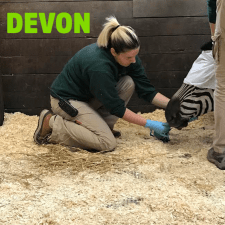
Kaitlin: A successful voluntary blood draw on a chimpanzee. Working with the chimps is very challenging, yet very rewarding when a medical behavior is accomplished.
Jenny: Working with one of the animal keepers, I’ve been able to perform voluntary hoof trims on our male lesser kudu.
Jen: Drawing blood voluntarily from the big cats — lion, cheetah and leopard.
Devon: Cheetah blood draw via voluntary behavioral training.
What would you tell someone who’s interested in getting into the field?
Kaitlin: Volunteer. Throughout my career I have been able to take internships, and volunteer positions in zoos and a wildlife rehabilitation center. I learned so much from the people I worked with, and it led to me having paid positions.
Jenny: I recommend seeking out any zoo internship or volunteer opportunities that are available.
Jen: There is something to be said for loving what you do — it makes it easier to wake up and go to work. So if you are interested — this is the most rewarding and fulfilling thing you can do!
Devon: Get ready to hit the ground running!!
What ways do zoo techs differ from techs at small animal practice?
Kaitlin: I would have to say working with a large diversity of animals. Knowing what you need to do for a bird vs a lion is very different and knowing what those differences are during procedures is important. Lab work is a large difference. Depending on the zoo hospital many zoos have their technicians conduct most of the general lab work (i.e. fecals, complete blood cell counts, blood chemistries, and cytologies). Lastly, being able to accommodate the animal, meaning bringing the hospital to the patient. It’s not always best to move a patient for routine examination so the technicians are responsible for packing up the necessary equipment.
Jenny: The variety of species we work with is really what sets us apart from small animal practice. One day we may be assisting the vets with a routine physical on a chimp. The next day we may be administering medication to a Panamanian golden frog.
Jen: The difference is there are a lot more types of animals to learn anatomy and basic practices on
Devon: The wide range of species that you have to be familiar with.

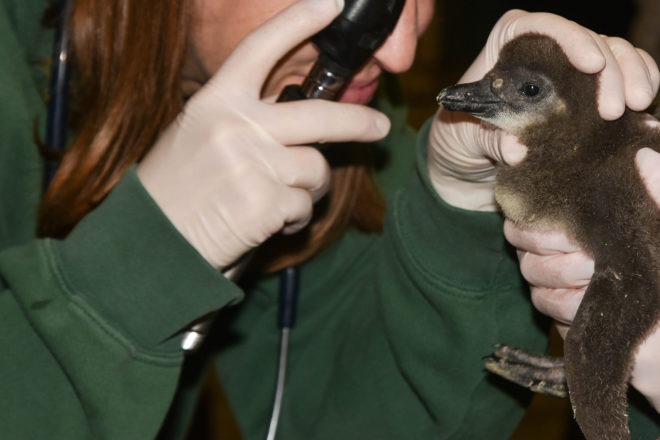
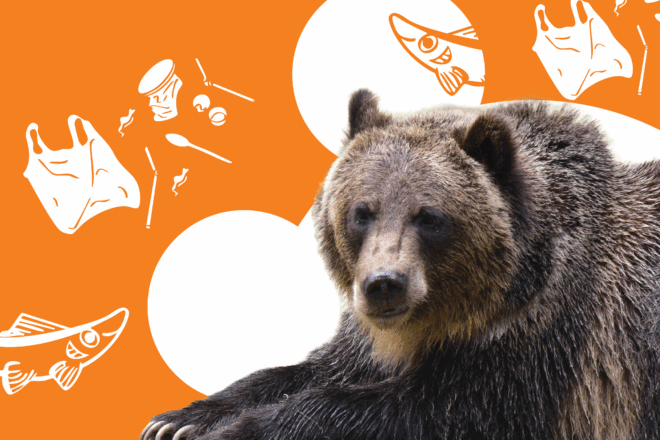
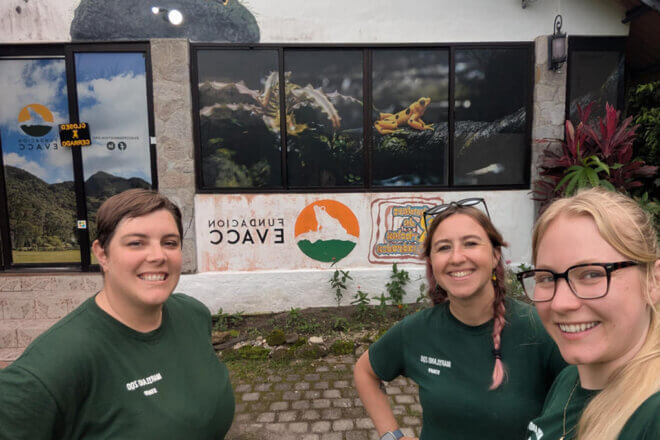
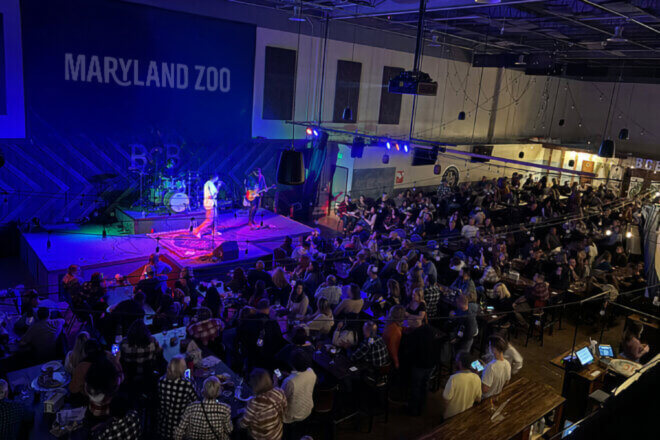
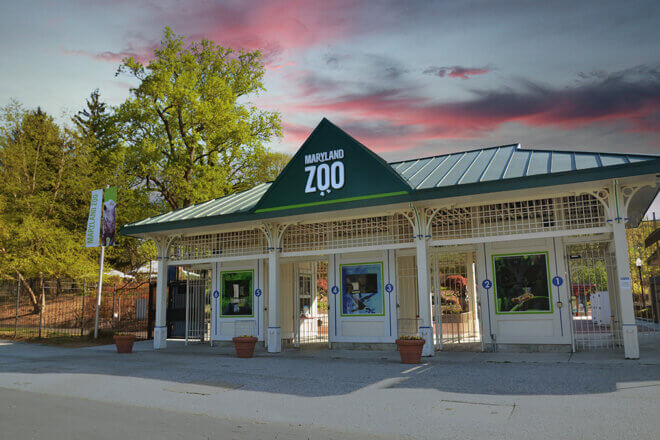
Share this article